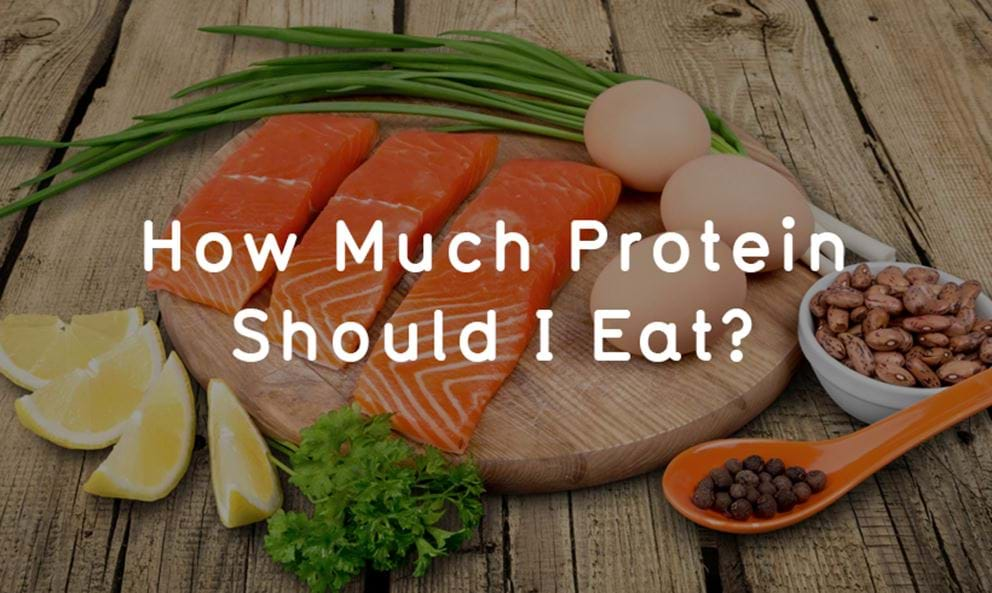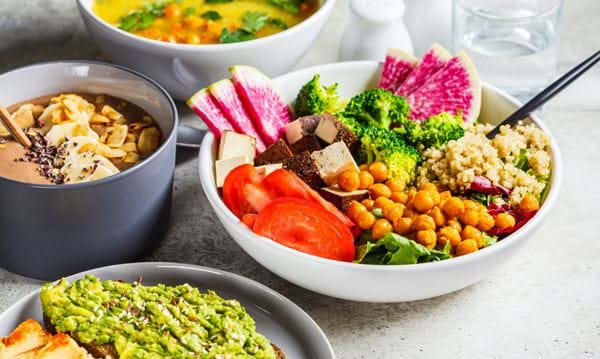How much protein should I eat?

Protein is an important part of a healthy and balanced diet. It’s essential for the growth and repair of all types of body tissue, including muscles, organs, and your immune system. It helps with digestion, hair and nail growth, blood clotting, and transporting nutrients and oxygen to the cells.
Why is it important to eat protein
Athletes, bodybuilders and fitness enthusiasts will need to consume more protein in order for the body to repair and recover from the demands of heavy training. To build muscle, you need to combine strength training with a healthy and balanced diet that includes enough protein. As well as eating protein in greater amounts, you should eat at regular intervals. To get the most out of your workout, include protein in meals before and after a strength training session. This will help your body to repair and build muscle.
What happens to your body when you eat protein
The protein and amino acids start repairing the muscle tissues that have been damaged during training, making them stronger and able to cope with the demands placed on them. This process is called protein synthesis. The proteins in your cells are repaired and replaced, becoming stronger so they can handle the stress that is placed on them. The important thing to remember is, for your training to be effective, you need to trigger protein synthesis in the body.
Whether you’re training in the gym, on the track, or in another sporting environment, it’s important to get all aspects of nutrition right. If you’re looking to see results, and recover to meet your fitness goal, eating the right amount of protein is key.
How much protein should I be eating?
According to NHS guidelines, the average adult aged between 16-64 should consume around 50g of protein daily.
Numerous studies have been conducted to find out how much protein would be best when it comes to protein synthesis, and building muscle.
Researchers at the University of Kent tested 3 different groups of people. The first group ate a low protein diet, which was only 0.9 grams of protein per kilogram of bodyweight. The second consumed 1.4 grams of protein per kilogram of bodyweight. The third group consumed 2.4 grams of protein per kilogram of bodyweight. The study involved both sedentary and strength training groups.
The results showed that participants in group one, the low protein group, did not eat enough protein to trigger protein synthesis. In group two, 1.4 grams was enough to activate protein synthesis. In group three, the results showed that although participants had an increased intake of protein, this did not increase protein synthesis more than group two.
According to this study's result, consuming 1.4 grams of protein per kilogram of bodyweight is enough for protein synthesis to begin. The amount of protein you eat will not affect how much muscle you build. Instead it’s a combination of training and eating enough protein for the repair and growth process to begin.
Protein intake is very much down to the individual so it is hard to give a set in stone amount of how much you should be consuming but you can use these above references as a guideline, as well as do your own research from other sources and see how your body responds with different intakes, and adjust accordingly.
Foods high in protein
Protein-rich foods include, chicken, fish, lean red meat, eggs, beans, and dairy products, such as milk, yoghurt and cheese - we recently wrote a post that gave a run-down of egg yolk nutrition.. To keep the body healthy, protein should be included in all your meals. It contains amino acids, which are the building blocks used for the growth of muscles. Protein will help your body to maintain muscle mass.


